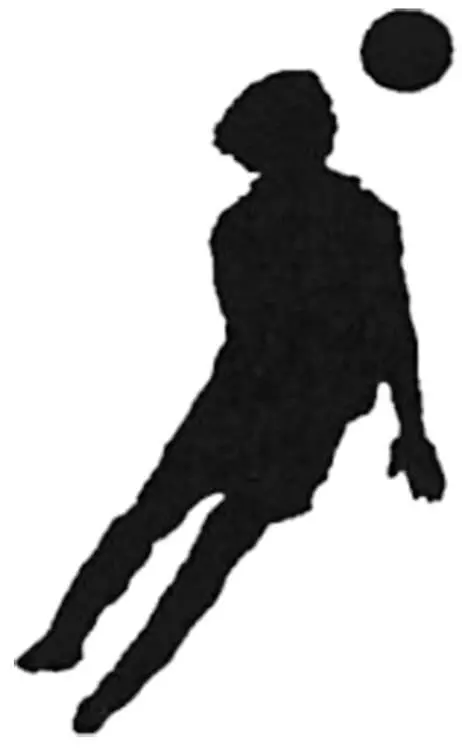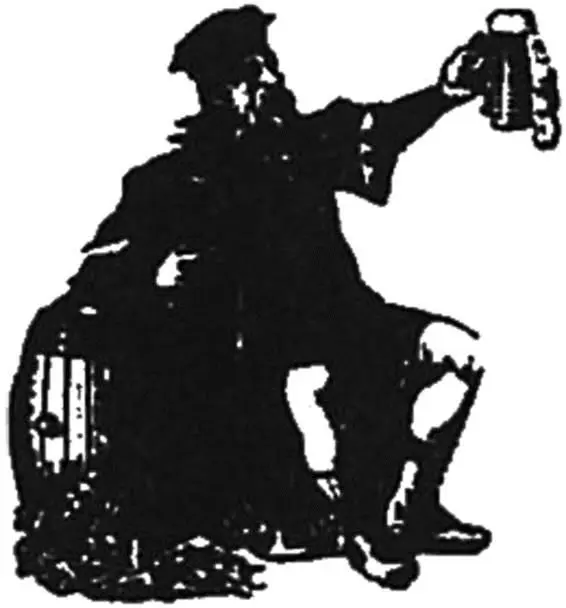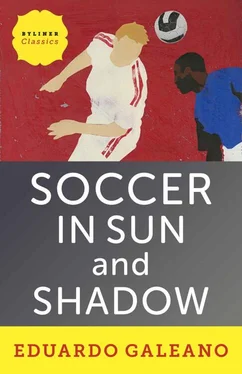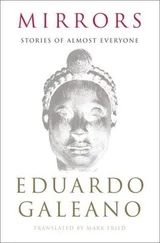Tostão got the ball from Paulo Cézar and scurried ahead as far as he could, but all of England was spread out in the penalty area. Even the Queen was there. Tostão eluded one, then another and one more, then he passed the ball to Pelé. Three players suffocated him on the spot. Pelé pretended to press on and the three opponents went for the smoke. He put on the brakes, pivoted and left the ball on the feet of Jairzinho, who was racing in. Jairzinho had learned to shake off his markers on sandlots in the toughest slums of Rio de Janeiro. He came on like a black bullet and evaded one Englishman before the ball, a white bullet, crossed the goal line defended by the keeper Banks.
It was the winning goal. Swaying to the rhythm of a fiesta, Brazil’s attackers had tossed off seven guardians of the steel fortress, which simply melted under the hot breeze blowing from the south.

There are towns and villages in Brazil that have no church, but not a one lacks a soccer field. Sunday is the day of hard labor for cardiologists all over the country. On a normal Sunday people die of excitement during the mass of the ball. On a Sunday without soccer, people die of boredom.
When the Brazilian national team met disaster at the ’66 World Cup, there were suicides, nervous breakdowns, flags at half-staff, and black ribbons on doors. A procession of dancing mourners filled the streets to bury the country’s soccer prowess in a coffin. Four years later, Brazil won the world championship for the third time and Nelson Rodrigues wrote that Brazilians were no longer afraid of being carried off by the dogcatcher, they were all ermine-caped kings in pointy crowns.
At the World Cup in 1970, Brazil played a soccer worthy of her people’s yearning for celebration and craving for beauty. The whole world was suffering from the mediocrity of defensive soccer, which had the entire side hanging back to maintain the catenaccio while one or two men played by themselves up front. Risk and creative spontaneity were not allowed. Brazil, however, was astonishing: a team on the attack, playing with four strikers — Jairzinho, Tostão, Pelé and Rivelino — sometimes increased to five and even six when Gérson and Carlos Alberto came up from the back. That steamroller pulverized Italy in the final.
A quarter of a century later, such audacity would be considered suicide. At the ’94 World Cup, Brazil won another final against Italy, this time decided in a penalty shootout after 120 minutes without a single goal. If it had not been for the penalty shots, the nets would have remained untouched for all eternity.
At the victory carnival in 1970, General Médici, dictator of Brazil, handed out cash to the players, posed for photographers with the trophy in his arms, and even headed a ball for the cameras. The march composed for the team, “Forward Brazil,” became the government’s anthem, while the image of Pelé soaring above the field was used in TV ads proclaiming, “No one can stop Brazil.” When Argentina won the World Cup in 1978, General Videla used the image of Kempes, unstoppable as a hurricane, for exactly the same purpose.
Soccer is the fatherland, soccer is power: “I am the fatherland,” these military dictators were saying.
Meanwhile, Chile’s bigwig General Pinochet named himself president of Colo-Colo, the most popular club in the country, and General García Meza, who had taken over Bolivia, named himself president of Wilstermann, a club with a multitude of fervent fans.
Soccer is the people, soccer is power: “I am the people,” these military dictators were saying.

Eduardo Andrés Maglioni, forward for the Argentine club Independiente, won a spot in The Guinness Book of World Records as the player who scored the most goals in the least time.
In 1973, at the beginning of the second half of a match against Gimnasia y Esgrima from La Plata, Maglioni beat the goalkeeper Guruciaga three times in a minute and fifty seconds.
It was 1973. The youth teams of Argentinos Juniors and River Plate were playing in Buenos Aires.
Number 10 for Argentinos received the ball from his goalkeeper, evaded River’s center forward, and took off. Several players tried to block his path: he put it over the first one’s head, between the legs of the second, and he fooled the third with a backheel. Then, without a pause, he paralyzed the defenders, left the keeper sprawled on the ground, and walked the ball to the net. On the field stood seven crushed boys and four more with their mouths agape.
That kid’s team, the Cebollitas, went undefeated for a hundred matches and caught the attention of the press. One of the players, “Poison,” who was thirteen, declared, “We play for fun. We’ll never play for money. When there’s money in it, everybody kills themselves to be a star and that’s when jealousy and selfishness take over.”
As he spoke he had his arm around the best-loved player of all, who was also the shortest and the happiest: Diego Armando Maradona, who was twelve and had just scored that incredible goal.
Maradona had the habit of sticking out his tongue when he was on the attack. All his goals were scored with his tongue out. By night he slept with his arms around a ball and by day he performed miracles with it. He lived in a poor home in a poor neighborhood and he wanted to be an industrial engineer.

President Nixon was hanging from the ropes, weak-kneed, buffeted ceaselessly by the Watergate scandal, while a spaceship was hurtling toward Jupiter and in Washington an army lieutenant who had murdered a hundred civilians in Vietnam was being found innocent: after all, there weren’t more than a hundred, and they were civilians, and what’s more, they were Vietnamese.
The novelists Miguel Ángel Asturias and Pär Lagerkvist lay dying, along with the painter David Alfaro Siqueiros. General Perón, who had burned his mark on Argentina’s history, was on his deathbed. Dying too was Duke Ellington, the king of jazz. The daughter of the king of the press, Patricia Hearst, was falling in love with her kidnappers, robbing banks, and denouncing her father as a bourgeois pig. Well-informed sources in Miami were announcing the imminent fall of Fidel Castro, it was only a matter of hours.
The dictatorship in Greece was crumbling, and so was the one in Portugal, where the Carnation Revolution was dancing to the beat of “Grândola, vila morena.” The dictatorship of Augusto Pinochet was tightening its grip on Chile, while in Spain, Francisco Franco was dying in the Francisco Franco Hospital, sick with power and age.

In a historic plebiscite, Italians were voting to legalize divorce, which seemed preferable to daggers, poison, and other methods favored by tradition for resolving marital disputes. In a no less historic vote in Switzerland, the leaders of world soccer were electing João Havelange president of FIFA, ousting the prestigious Stanley Rous, while in Germany the tenth World Cup was getting under way.
Читать дальше
















